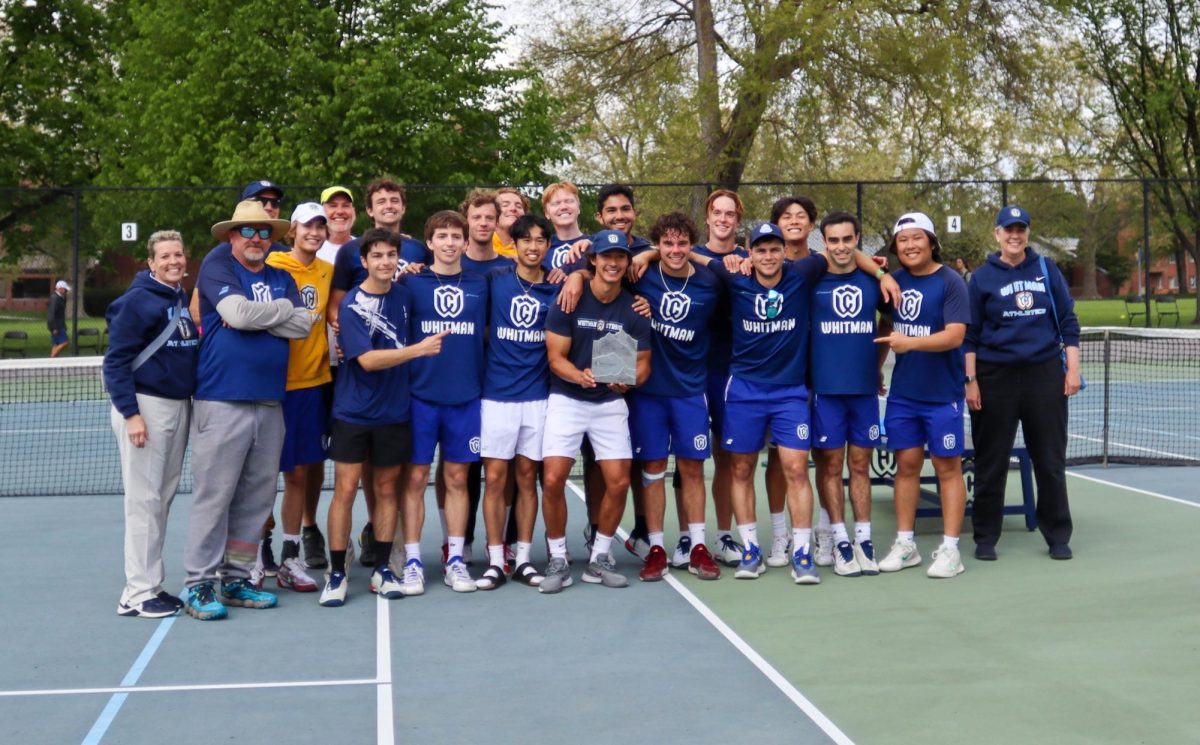
Whitman is a place that prides itself on giving students every opportunity possible to succeed and experience all that college has to offer, and the Off-Campus Studies (OCS) program is no exception.
Every year, countless students leave the self-proclaimed Whitman bubble in exchange for the chance to travel and study abroad in nearly any place imaginable, from South Africa to China. For varsity athletes who would otherwise be in the middle of off-season training, however, the choice to study abroad can directly impact their athletics.
“I may have thought a little harder about whether going abroad would be in my best interest, but for me, going abroad is something I always knew I wanted to do, regardless of where I attended school or whether I played soccer,” said junior soccer captain Libby Watkins, who is currently studying in Washington, D.C., and spent the summer of 2010 in Tanzania.
“[M]y study abroad decision was greatly influenced by my being a varsity athlete,” said senior swim captain Jamie Nusse, who studied last spring in Buenos Aires, Argentina. “Due to the inversion of seasons in the southern hemisphere, the Argentines had summer vacation while we had winter break, so their semester did not start until about a month after ours. I knew swimmers who had studied abroad in South America and New Zealand who were able to finish the swim season and then depart, which is why I chose to go south.”
While being a varsity athlete made Watkins and Nusse think about their study abroad options, senior swim captain Ali Schlueter wasn’t influenced at all by athletics in her decision to go abroad.
“I knew that studying abroad was a once in a lifetime opportunity, and I knew I would have my whole senior year season [ahead],” said Schlueter, who went abroad to Freiburg, Germany in the fall of 2009.
It appears to be a common theme that being a varsity athlete has little to no effect on a student’s decision to study abroad, as the opportunity is not something students want to pass up.
“When advising students, I find that [they] rarely mention athletics as an issue [for studying abroad], other than occasionally talking about a preference for study abroad in the spring rather than the fall because of a sport,” said Susan Brick, OCS director.
Winter sports athletes find themselves faced with a tougher decision in figuring out when to go abroad, since studying in the fall or spring semester will cut into regular season training time. Nusse, who left after the Northwest Conference Championships, believes it is easier for winter athletes to go abroad for spring semester, when the off-season is just beginning.
Schlueter, who went abroad in the fall, agrees that “joining the swim team at the peak of their season was difficult,” since all of the first-years were newcomers as her own season was beginning.
For all of the varsity athletes who study abroad, the return to Whitman is equivalent to a homecoming of sorts, as the athletes are welcomed back into the community by their teammates. Motivation to maintain fitness and improve individually can be difficult to come by while abroad for many athletes, but returning to the team dynamic makes the transition all the more easy. The connection between teammates isn’t often something that can be broken by distance.
“It was extremely difficult to exercise without a team,” said Schlueter. “Exercising by yourself is boring when you’re used to doing it with 40 of your closest friends. There’s no replacement for that kind of support and motivation.”
“I always find that it’s harder to motivate myself when my teammates aren’t around, but knowing that everyone back at Whitman is working harder than ever really pushes me,” said Watkins. “I don’t want to let my teammates down, so often that is what gets me going even when working out is the last thing I want to do.”


